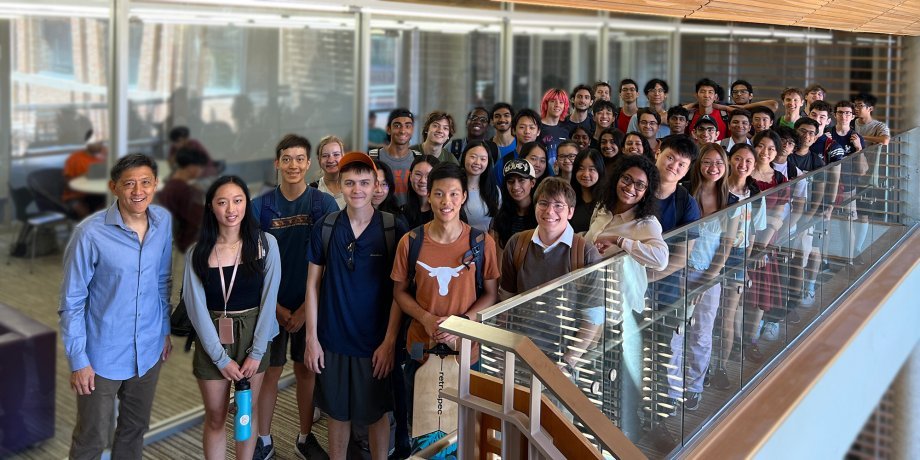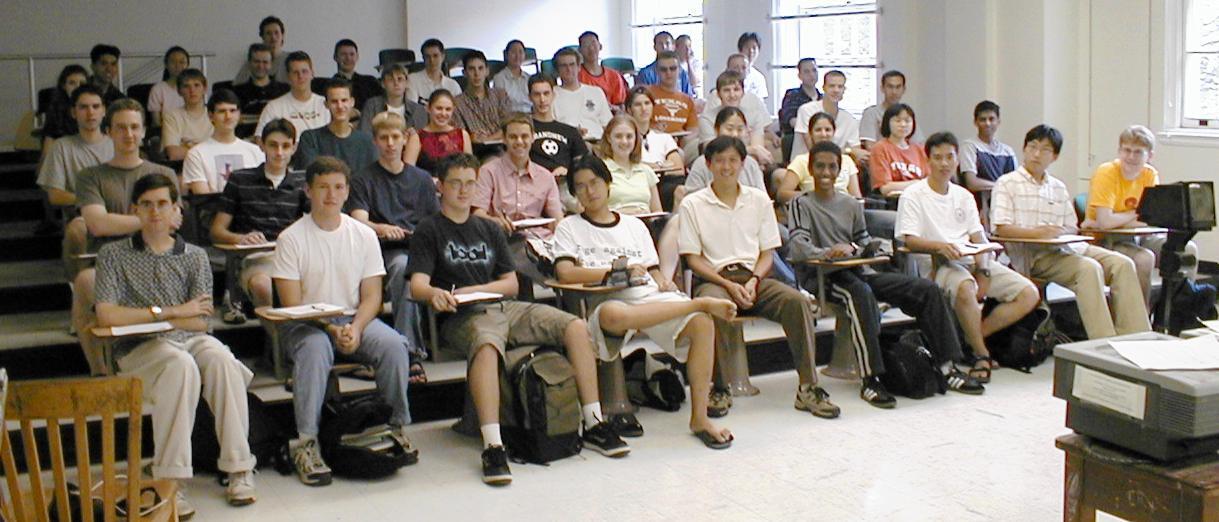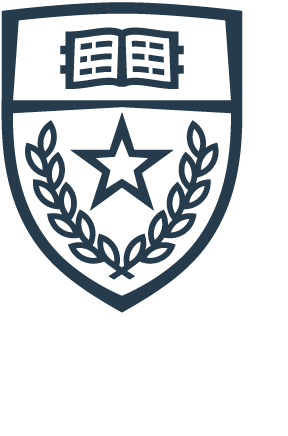Submitted by Anita Shiva on

Professor Calvin Lin, Director of the Turing Scholars Honors Program, with current Turing Scholars (Fall 2023).
This year, the Department of Computer Science is celebrating the 20th anniversary of the Turing Scholars Honors Program, a milestone that recognizes the many talented students the program has seen since its inception. Over the years, the program has established itself as one of the premier computer science honors programs in the country, leaving a lasting impact on its graduates’ academic and professional journeys.
Dr. Elaine Rich’s vision of a new curriculum to better serve advanced undergraduate computer science students led to the establishment of the Turing Scholars program. In its early years, Dr. Calvin Lin, the program’s current director, faced the challenge of building recognition for the program. Now, the program has grown significantly and is highly sought after, attracting top-tier applicants from around the nation.

One of the program’s key strengths lies in offering small-size honors classes, providing students with a unique learning environment. Dr. Lin’s favorite course to teach over the years, Data Structures, is a cornerstone for Turing freshmen. The curiosity and profound engagement of his students make it an incredibly fun and rewarding teaching experience.
“I am continually surprised by the curiosity of my students when they pose questions or offer perspectives that hadn’t occurred to me. I often leave the classroom thinking, “Wow, that was so much fun,” says Dr. Lin.
The program’s impact extends beyond traditional coursework, Turing Scholars students find themselves delving into cutting-edge research, enriching their academic experience. For instance, Jennifer Mickel, a senior in the program, is actively involved in Artificial Intelligence research, collaborating with experts both within and beyond the university. Such opportunities, far from being exceptions, epitomize the norm within the program. In the second semester of his freshman year, current sophomore Christopher Hill had the opportunity to take a graduate level computer architecture course. These experiences showcase how early exposure to advanced courses propels students into specialized fields, setting the stage for impactful contributions to the world of computer science.
“There were only a few people in the course, so you’re all having an open discussion. It got me into computer architecture and exposed me to research papers and all these different aspects. Now, I’m doing research with Dr. Lin in the same field,” Hill says.
A key component of the Turing Scholars curriculum is the undergraduate thesis, a culmination of a student's academic journey. Dr. Lin emphasizes how this thesis encourages students to ask critical questions, articulate and defend a position, work independently, manage their time, and communicate effectively—a testament to the holistic educational approach of the program.
“If you think of all these skills, you can get pieces of them in courses, but to do a successful honors thesis embodies so many of those skills,” Dr. Lin says.
This commitment to holistic skill development goes hand in hand with the program's emphasis on fostering a vibrant and supportive community. Recognizing that academic growth is just one part of a student's journey, incoming Turing students are invited to join the Turing Scholars Student Association (TSSA). The organization hosts a variety of social and career events to foster community among Turing Scholar students. As co-presidents of TSSA, Jennifer Mickel and Meyer Zinn (‘24) actively create opportunities for students to engage with one another and get involved in leadership. This integration of academic excellence and community building defines the comprehensive educational experience Turing Scholars offers.
“When Jennifer and I started the year as co-presidents of TSSA, we were interested in the transformative role that TSSA can have on people’s experiences as a student,” Zinn says.
Reflecting on their time in the program, Jennifer and Meyer share their insights and advice for incoming, and aspiring Turing students. Their emphasis on a supportive community and encouragement to reach out and build connections reflect the values that make Turing Scholars more than just an academic program.
“The Turing Scholars community is very supportive. The classes are really hard, but peers who are doing better or who understand are always willing to help others who might not be there yet,” Mickel says.
“We try to encourage people to come to the honors office and say hi, introduce themselves. [You] may make a friend that you never would have interacted with otherwise, and build a connection that you wouldn’t have thought,” Zinn adds.
As the program looks to the future, Dr. Lin hopes to continue improving the Turing curriculum and offer more career and research opportunities for students. Increased funding would allow the program to provide more scholarship opportunities to prospective students. In his time as director, Dr. Lin has seen many cohorts of students graduate and achieve success in their career.
“One of the great thrills has been hearing back from students after they’ve graduated and seeing how they’re doing. They are appreciative of the resources they gained from their time in Turing,” says Dr. Lin
In celebrating two decades of the Turing Scholars program, we not only applaud its growth and achievements but also recognize the enduring impact it has had on the students. Here’s to the next 20 years of shaping brilliant minds and fostering a legacy of excellence in computer science education.







